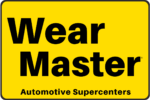Engine Maintenance in Utica, MI
Routine engine maintenance on your car or truck might not seem like the most glamorous part of your week, but it will save you more time, hassle and money than you think. Everyone has been to the shop and got a bill for more than they expected, something came from out of nowhere. But following the manufacturer’s recommended maintenance schedule and getting a multi point inspection performed by a trained technician you can reduce the likelihood of unexpected repairs.
Each make and model has its own maintenance schedule. Take a look at your manual and in it will be a breakdown of what services need to be performed at what mileages. This is crucial because some vehicles require oil changes at every 3,000 miles, others at 5,000, some others at a whopping 10,000 miles. We do our very best to keep an eye on your mileage and recommend services, but ultimately you have to make sure that the right services are performed at the right mileages. If you do not have your vehicle’s owner’s manual, take a look online for the maintenance schedule, or just give us a call and we can help you plan out your maintenance and create a maintenance log so you can record what services were performed when and what services were recommended.
The most common routine maintenance items include:
- Oil changes – Changing your oil is the most common, and most critical maintenance service. Changing the oil and filter ensures that fine metal particles that are produced during the course of a vehicle’s life don’t damage the engines internal components.
- Engine air filter changes – The engine air filter ensures that no debris is able to enter the combustion chamber, preventing damage to the valves. A clogged air filter will choke the engine, preventing sufficient air from being used by the engine, reducing power and fuel mileage.
- Wheel alignment – Every vehicle’s wheels need to be perfectly aligned to make sure your tires wear evenly. For more information on wheel alignments, click here.
- Spark Plugs – Spark plugs will eventually become dirty and corroded. This prevents the spark plug from firing properly. This can cause reduced fuel efficiency, stuttering and engine misfires.
- Brakes – Being able to stop is the number 1 most important safety feature on every vehicle. There are multiple components to the system, all of which will wear over time resulting in less and less braking power, reducing your ability to stop quickly when needed. Your brake pads, rotors, brake fluid and pump should all be inspected regularly.
- Engine belts – Many newer vehicles rely on a single serpentine belt to drive all of the engines components including the power steering pump, alternator, etc, while many older vehicles have multiple belts. Regardless of the setup, engine belts should be inspected regularly and changed as soon as it shows wear. If the serpentine belt fails, your vehicle will lose power steering, electricity and other functions.
- Coolant, transmission fluid, brake fluid and power steering fluid changes – Changing dirty fluids is one of the most important services that you can do. Dirty fluid contains particles that, as the fluid is circulated through the individual systems, can damage internal components causing premature wear.
- Timing belt and water pump replacement – While many newer vehicles utilize a timing change which does not require a regular change, most older vehicles still require regular (although infrequent) replacement of the timing belt to ensure all of the internal engine components are in sync. You should also always replace the water pump at that time since the belt must be removed and timing reset when it is replaced.
Each of these is critical for different reasons and ensures that your vehicle is in good working order, preventing costly repairs caused by poor upkeep or worse still, a mid road trip breakdown resulting in a costly towing bill on top of your repair bill.
Multi Point Inspection
You should always request a full, multi point inspection at every routine service. This is often the only opportunity for a trained technician to take a look under your vehicle, inspect the suspension, brakes, fluids, etc. Just because your vehicle doesn’t call for a fluid flush, doesn’t mean that it isn’t needed. So that multi point inspection and the recommendations that come from it are critical for keeping your vehicle in tip top shape.
